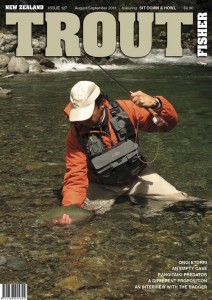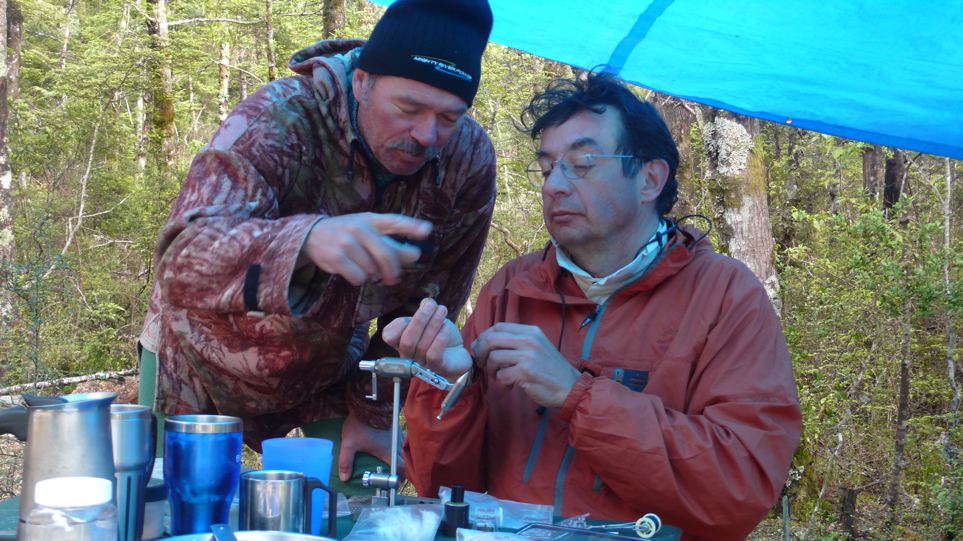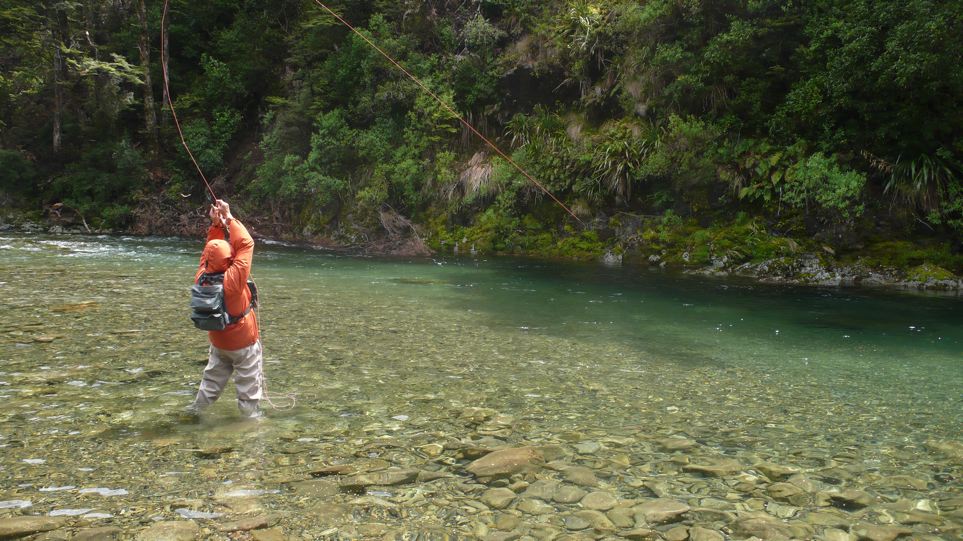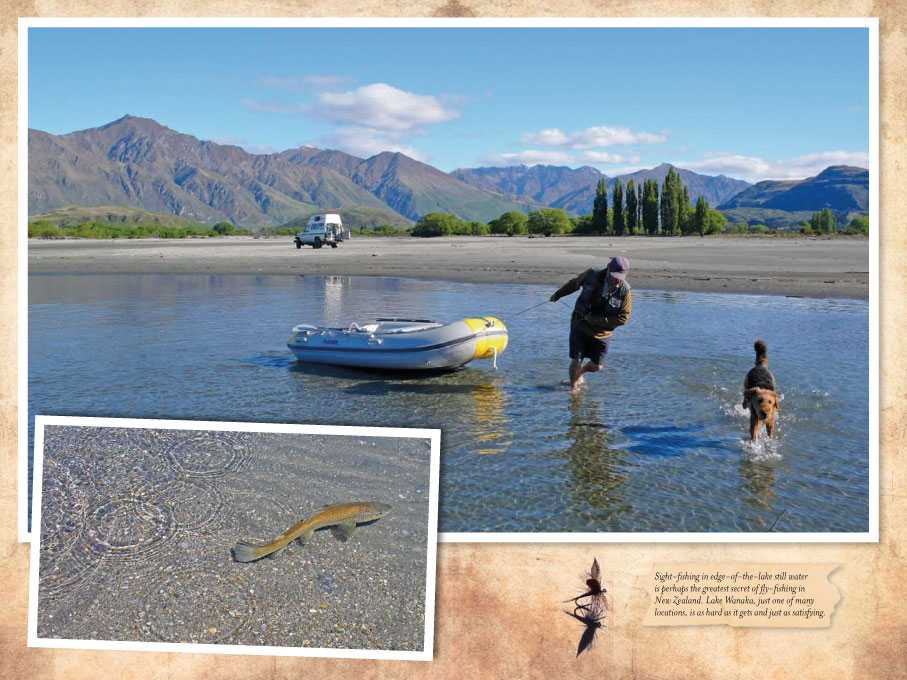An excerpt from The Trout Diaries, A year of Fly Fishing in New Zealand
In the Taupo backcountry, in the illustrious company of the CDC guru Marc Petitjean and trout scientist Michel Dedual, Derek Grzelewski fights trophy rainbows and other demons.
 Have you ever been on a fishing trip, a long-planned and much anticipated, where nothing goes right for you? You arse up just stepping out of the helicopter and give yourself a good one on the shin. You promptly trump this with another act, stepping on the loose end of a vine with one foot, with the other tripping over the noose you’ve thus created. You want to break the fall with your hands but they are full of camping gear and heavy supermarket bags, and your backpack, well, it’s just big and inert enough to prevent a recovery. Your companions help you up and give you puzzled looks. And you too wonder: what’s going on? Is it just me or some nasty local taniwha who clearly does not want me here?
Have you ever been on a fishing trip, a long-planned and much anticipated, where nothing goes right for you? You arse up just stepping out of the helicopter and give yourself a good one on the shin. You promptly trump this with another act, stepping on the loose end of a vine with one foot, with the other tripping over the noose you’ve thus created. You want to break the fall with your hands but they are full of camping gear and heavy supermarket bags, and your backpack, well, it’s just big and inert enough to prevent a recovery. Your companions help you up and give you puzzled looks. And you too wonder: what’s going on? Is it just me or some nasty local taniwha who clearly does not want me here?
Maybe it’s both because things get even worse. On the river, you tangle up, spook every trout you see, hook yourself with your own fly, the one you did not yet de-barb. By contrast, your companions are having time of their lives. That first night in the headwaters of the Rangitikei, after we set up a camp in the forest clearing, Michel trotted off for an evening hunt and only minutes up the creek bagged a decent-size sika deer. He brought it down, dressed and hung it from a tree, then, going down to the creek to wash his hands, he spotted a fish rising in the camp pool. He ran back for his rod and hooked the six-pound trout first cast. A pool below I was with Marc, watching him fight an equally magnificent rainbow. When the night fell all I had to show for was a limp, a grazed elbow, and an increasingly foul mood.
But then we were back in the camp, the fire, wine and good food working their wizardry. I stared into the flames, sipping another glass of red and thought: “hey, anyone can have a false start, a bad day, and mine was just about over.” Earlier, I even spilled some wine on the ground, a peace offering to the taniwha, if there was one. I certainly did not want to fight it for another day.
The upper Rangitikei, clear like spring water, snakes a contorted passage through the volcanic hills of the Kaimanawa Forest Park, east of the Tongariro. The fishing here is hard and honest, every fish a major victory, and that’s providing you are at your best, sharp and assertive. Tomorrow, I promised myself, was a tabula rasa I should fill with perfect casts and beautiful fish. No pratfalls and blunders. I fell asleep with the visions of rainbows racing each other for those beautiful CDC dries Marc was tying.
I have to tell you about Marc. This was, after all, his trip. He had travelled halfway around the world for these five days on the Rangitikei, and Michel especially did all he could to make those days into a memorable outing. Once on the river Marc needed no help at all. As Pasteur said “good fortune favours the prepared mind” and Marc Petitjean was more prepared than most. “If you define the problem, the solution is often obvious,” he told me that first night, apropos nothing. “People often get pissed off with themselves and they don’t know why. They never take time to precisely identify what bugs them. If they did, the remedy would be self-evident.”
Wise words but lost on me at the time.
The next morning I scooped out a large mayfly nymph out of the river with my stainless steel mug. The aquatic insect life in the Rangitikei is so prolific, every time you dip a pot, a plate or even cupped hands in the water you capture one of the little beasts. No wonder the trout grow so large here. Continue reading



